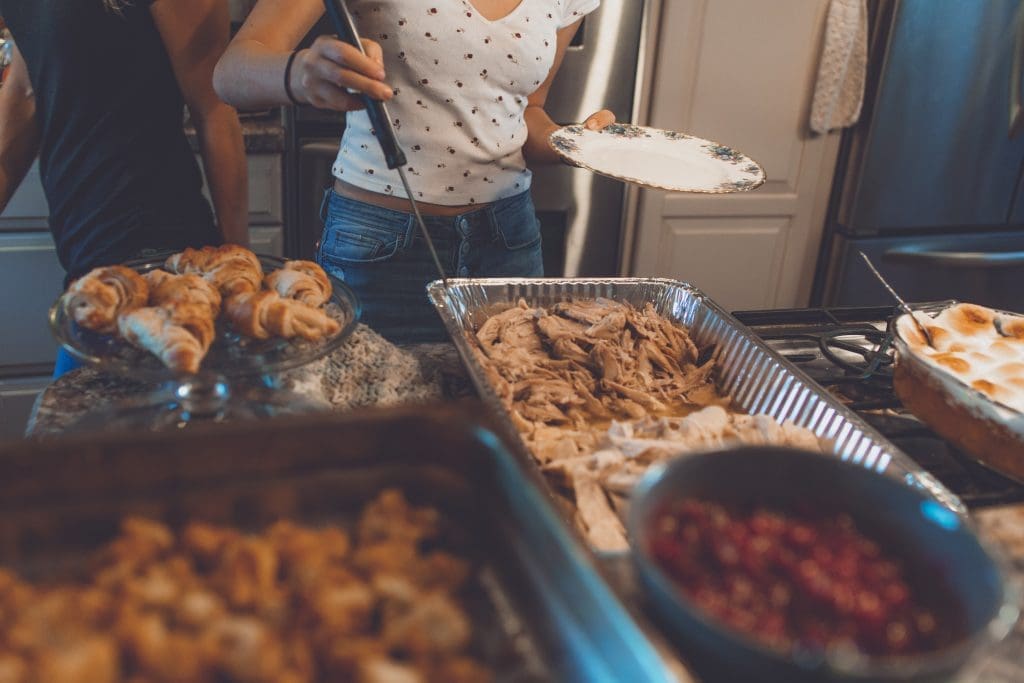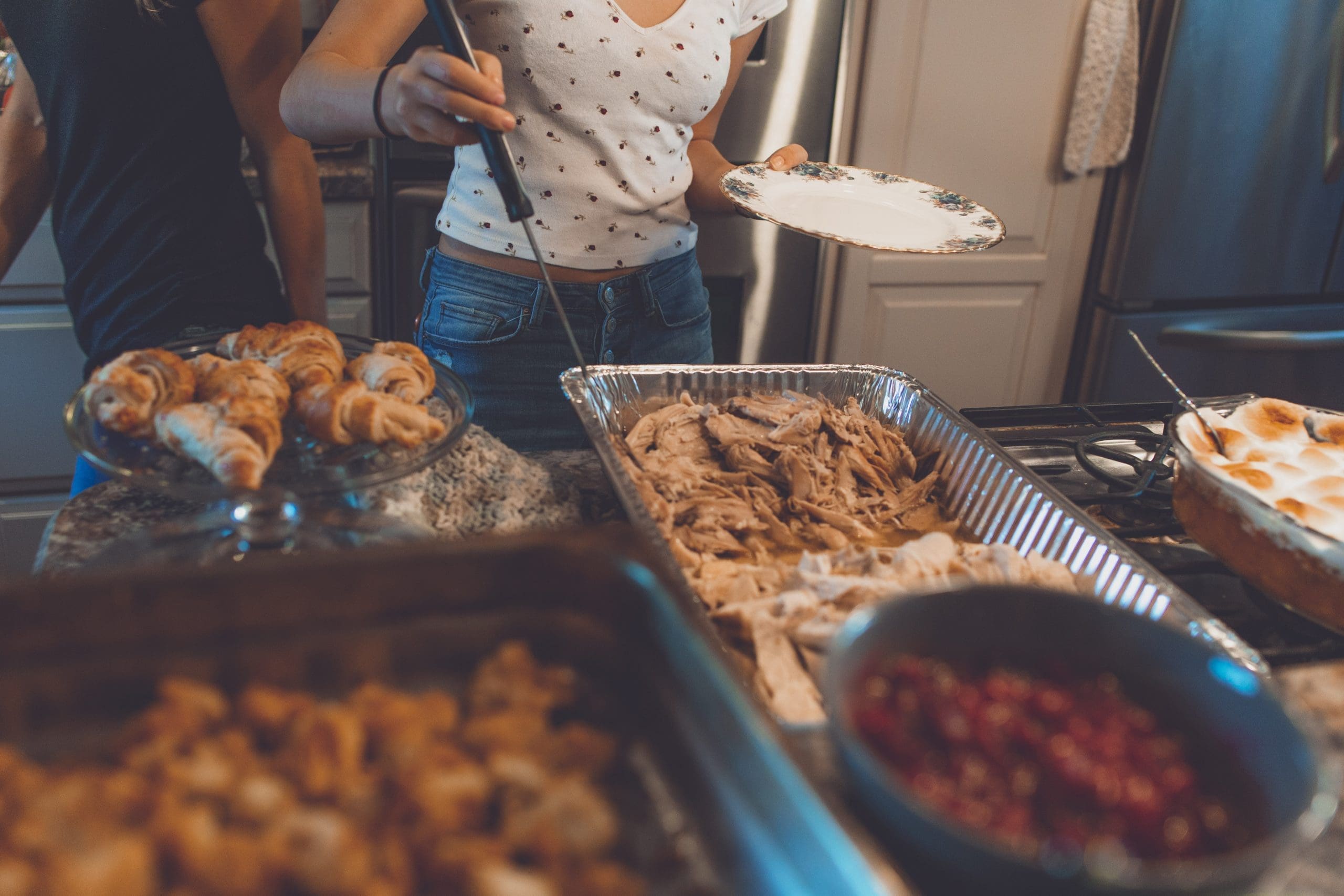As Thanksgiving approaches everyone is thinking about preparing food for 6 hours and eating in less than 30 minutes. But what about after Thanksgiving when the food coma hits and we look at the scale the next morning? What should we do to get back on track? Detox. But what does detoxing even mean?

When people think of detoxing after the holidays, they may lean towards juice cleanses or some other highly-restrictive plan, however, those “detox” regimens may do more harm than good. Those plans often lack important nutrients and may encourage unhealthy behaviors such as binge eating. It may be helpful to follow small tips, such as those that target bloating or help improve digestion but anything extreme should be avoided.
Our bodies already have organs, such as kidneys, that are built to remove toxins. Fresh n’ Lean Registered Dietician, Ysabel Montemayor says, “I think the proper way to detox after the holidays is to follow a well-balanced diet, get enough rest, and to exercise.” Here’s the “detox” she would recommend:
Post-Holiday “Detox” Plan
- Do not starve yourself. Skip the juice cleanses and eat a balanced diet.
- Stay Hydrated by drinking either water or green tea.
- Improve Digestion by eating:
-
- Fiber-rich food such as whole grains, fruits, nuts, seeds and vegetables, especially cruciferous vegetables (cauliflower, cabbage, garden cress, bok choy, broccoli, Brussels sprouts). Cruciferous vegetables are rich in sulfur, which increases glutathione levels- an important antioxidant in the body.
- Probiotic Food- increases healthy bacteria for improved digestion.
- Lean proteins
- Avoid processed foods
- Engage in at least 30 minutes/day of physical activity which can be aerobic activity or strength training, or both.
- It’s important to sleep between 7-9 hours per night as that is when your body is recovering.
3-day Booster: Add these to your balanced diet within the first 3 days after your holiday feast.
- Drink 1 cup of Kombucha made from green tea. It contains antioxidants and probiotics that help maintain a balance of good bacteria in your gut. Make sure you stick to ones with no more than 5g added sugar per serving.
- Snack on 1 handful of unsalted brazil nuts (1 oz)- they are rich in selenium which increases antioxidant activity (protects cells from damage) and reduces inflammation. Also rich in calcium, magnesium, and potassium (good for heart health).
- Eat 1 cup of red cabbage as part of a meal (try shredded in a salad). Rich in fiber, sulfur and antioxidants, such as anthocyanins. The pigment that makes it red has been shown to reduce blood pressure and inflammation. It contains more vitamin C than green cabbage.




